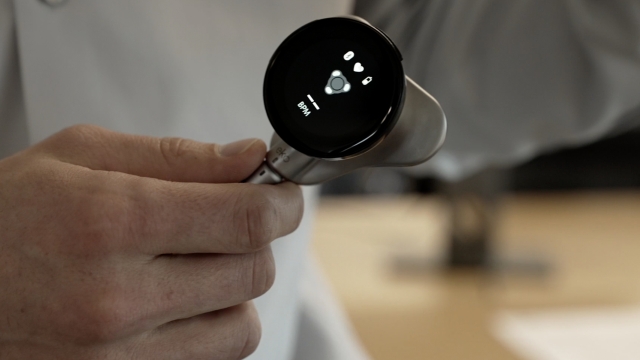More than 6 million Americans have heart failure, according to the CDC. Worldwide more than 11 million people have heart failure with reduced ejection fraction, or a weak heart pump. That’s according to a 2020 study in the journal of the American Medical Association.
A newly FDA-cleared artificial intelligence engineered by the Mayo Clinic and the company Eko Health can catch it in a matter of seconds.
The stethoscope has been around since 1816, and it’s gotten an AI makeover. Doctors use it to listen to our heart and lungs and interpret what they hear. Often, they need to do more tests, like a CT or MRI scan, to be sure about a diagnosis.
They also use an electrocardiogram, called ECG for short, to measure the heart’s electrical activity.
Scripps News' Lindsey Theis met with Connor Landgraf, a biomechanical engineer and CEO of Eko Health. For him, using AI to improve care is a personal and professional calling.
"I had pulmonary disease that was in my family. And I just felt like there had to be better technologies or better ways that physicians could use these tools to identify early signs of disease," said Landgraf.
A team at Mayo Clinic and Eko Health trained the AI program by having it listen to more than 100,000 patients’ recordings and having the computer interpret the heart’s activity. The new technology can now record and analyze a person’s own heart strength in 10 to 15 seconds, showing some of the earliest, hardest-to-detect signs of heart failure with low ejection fraction.
"This important disease that is often underdetected is associated with death, with comorbidities, with hospitalization, shortness-of-breath symptoms. And there are powerful treatments. But we have to know it's there," said Dr. Paul Friedman, cardiac electrophysiologist and cardiologist at the Mayo Clinic.
Landgraf says the stethoscope with the newly approved AI costs $429 with a monthly subscription.
SEE MORE: New AI improves companion robots with conversation, personalization
Trending stories at Scrippsnews.com



